You can send Woocommerce Order Notifications to customers via WhatsApp by Xpressbot in a very easy and straightforward way.
Purchase order information send to customers is very essential part to confirm customers about their purchase. In past Email & SMS was widely used. But it’s old now. Email is boring & people open it rarely. SMS is also not suitable for rich content & communication. Here WhatsApp comes as a game changer. WhatsApp is the most appropriate communication channel for this purpose.
In this article, I will show you how to send order notifications to your woo commerce customer’s WhatsApp from Xpressbot.
To make WhatsApp able to send messages to WooCommerce customers, you have to complete these steps.
To do that, first, you need to create a message template in Xpressbot. And the message template will be sent to the WooCommerce customers. After that, you have to create a new Webhook workflow and add the Webhook to the WooCommerce store. After that, you have to map data.
After you have completed these processes, Xpressbot can send WhatsApp messages to Woocommerce customers just as they complete an order.
First, you have to create a message template in the Xpressbot. And the message template will be sent as WooCommerce Order Notifications.
To create a message template, go to the Dashboard of Xpressbot. Click on the Botmanager menu in the left sidebar of the Dashboard. Instantly, WhatsApp Bot manager page will appear.
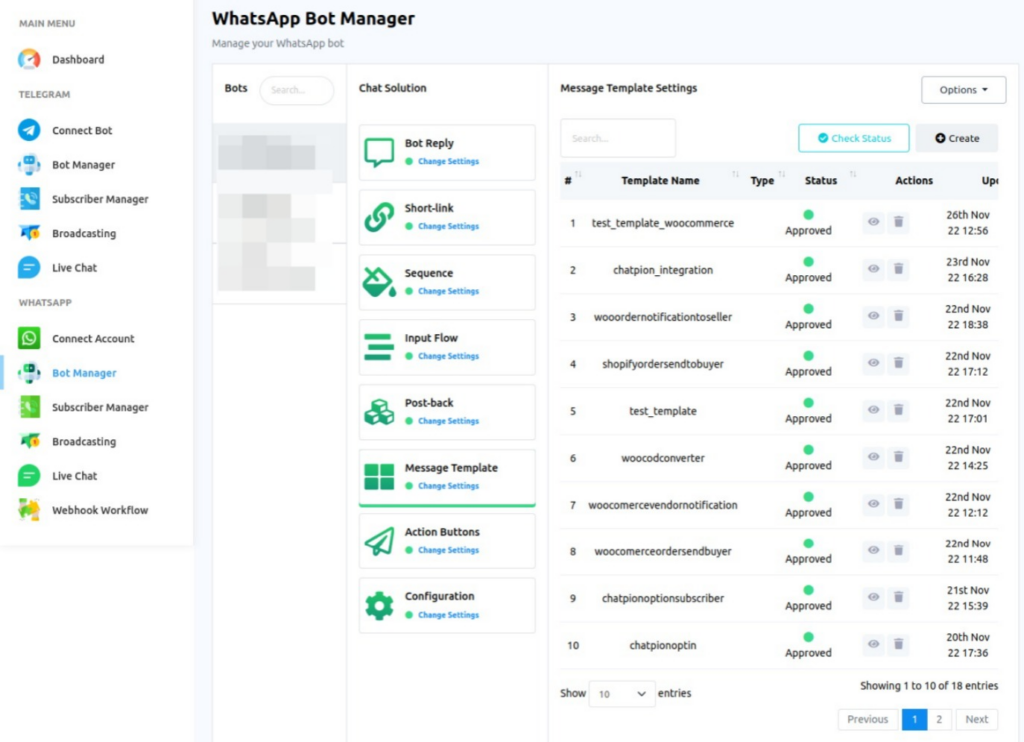
Before creating the message template, you have to create three variables. At the bottom of the page, you will see the Template variable section.

To create a variable, click on the create button. Instantly, a pop-up form will appear with a field called variable name. Provide a name for the variable in the field and click on the save button.

In this way, create three variables – Product list, Total price, and Estimated delivery date.
Now, you can create a message template that will be sent as WooCommerce Order notifications.
To create a message template, click on the create button in the Message template settings section. Instantly, a modal form called a Message template will appear. You have to fill out the modal form.
Provide a name in the template name field. Then write a message in the message body.
Then click on the save button.

Now you have to check the status of the message template. Click on the Check status button to see the status of the message template.

If the status is approved, you can use the message template.
Now you have to create a Webhook Workflow. To create a Webhook Workflow, click on the Webhook Workflow menu in the left sidebar of the dashboard.
Instantly, the WhatsApp Webhook Workflow page will appear with create button. Now click on the create button to create a Webhook workflow. Instantly, a section called new workflow will appear at the bottom of the page.
Provide a name in the Workflow name field. Then select the message template you have created to send it as a WooCommerce order Notification.
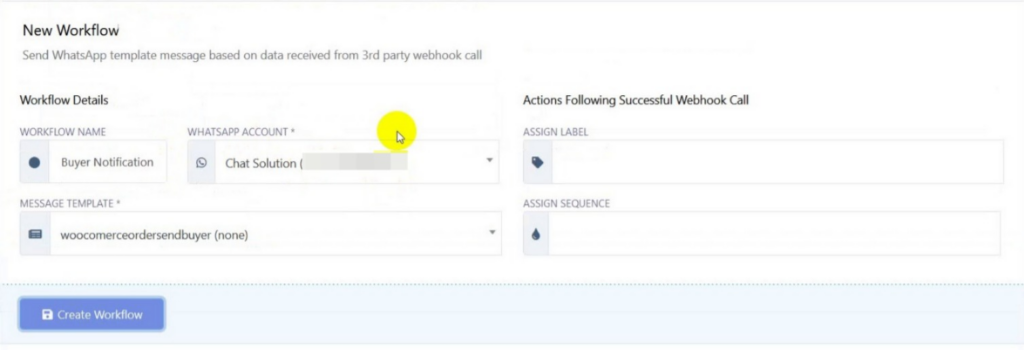
Now click on the save workflow button.
Instantly, a webhook callback URL will appear.
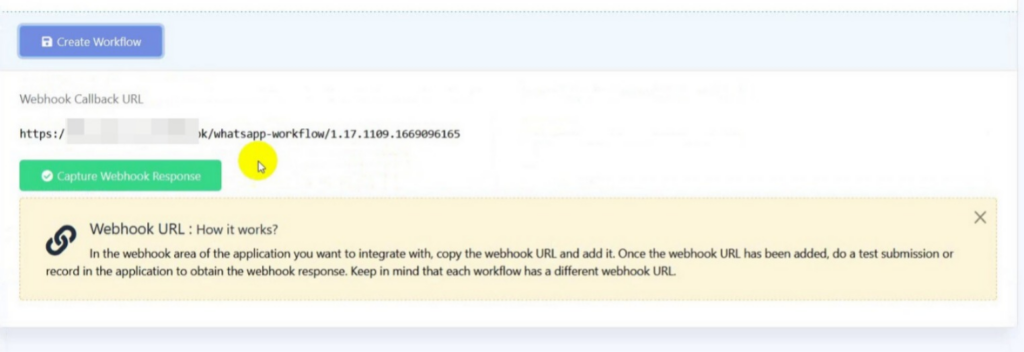
Now copy the Webhook URL. You have to use the Webhook callback URL in your WooCommerce plugin.
Now, go to your WordPress dashboard – admin dashboard. Then go to the WooCommerce plugin and then click on settings. Then click on the Advance tab.
Instantly, advanced settings will appear. Then click on the Webhook option.
Instantly, a page will appear with an add webhook button. By clicking on the add webhook button, you can add a webhook.
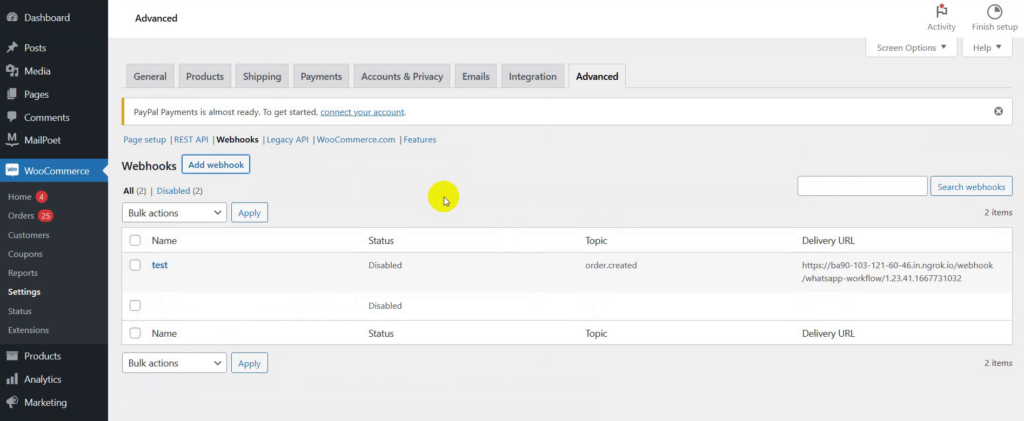
Now click on the add webhook button. Instantly, the Webhook data form will appear.
In the name field, provide a name. In the status field, select active as status. Select Order Created in the Topic field.
And in the Delivery URL field, paste the Webhook Callback URL that you have copied from the Xpressbot.
Now Click on the Save Webhook button.
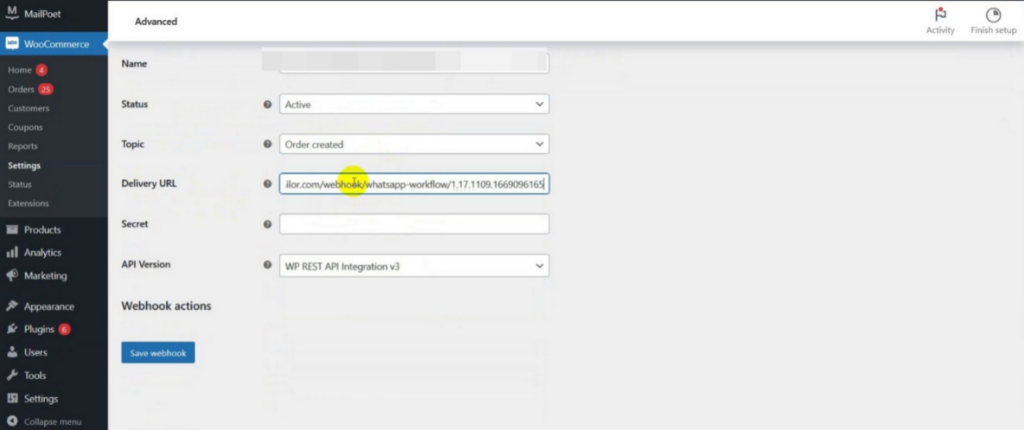
Now, you need to provide sample data for mapping.
Therefore, Click on the Capture Webhook Response.
Instantly, the Webhook Response Mapping page will appear with raw data.

It is sample data. When a Webhook is added, the sample data will be provided automatically.
Just ignore this data.
You need to send real data to webhook. To do that, go to the WooCommerce store. Then click on the preview store.
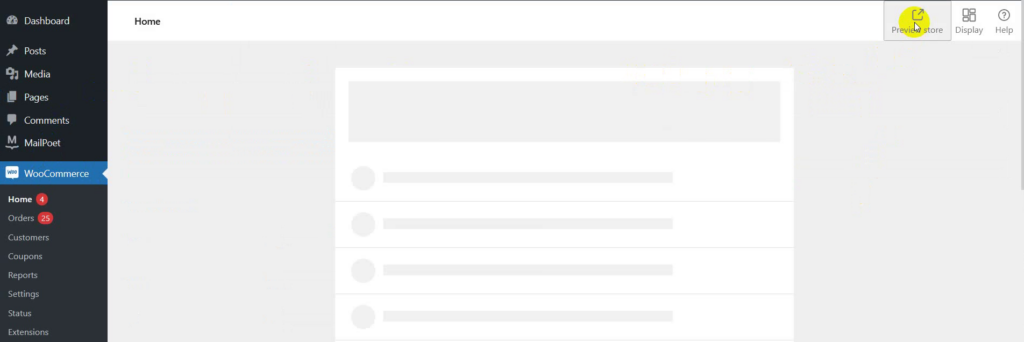
In the preview store, place an order.
Now you have to configure the Webhook Response Mapping.
To configure the Webhook Response Mapping, you have to fill out some fields.

To fill out the phone number field, you have to find out the phone number in the raw data. You will find the phone number in the billing section of the raw data.
Now click on the name field and a drop-down list of different options will appear. Now you have to select the billing->phone number option.
WhatsApp can’t send messages to a phone number that has a plus sign before the number.
Therefore, you need to set formatter to remove plus sign from the phone number.
You can easily create a formatter to remove plus sign from a phone number.

Then you have to select the formatter for the phone number.
Now you have to fill out the Product list variable field.
In the product list, you have to select the line item option.

Then you have to create a formatter for the list item.

After that, select the formatter for the list item, the formatter that you have created.
Now you have to select total price in the total price variable field.

Then select the formatter for the total price.

In the estimated delivery date field, you have to select the date-created option.

Then select the formatter for the estimated date.

Now click on the save workflow button.
Instantly, you will see a success message.
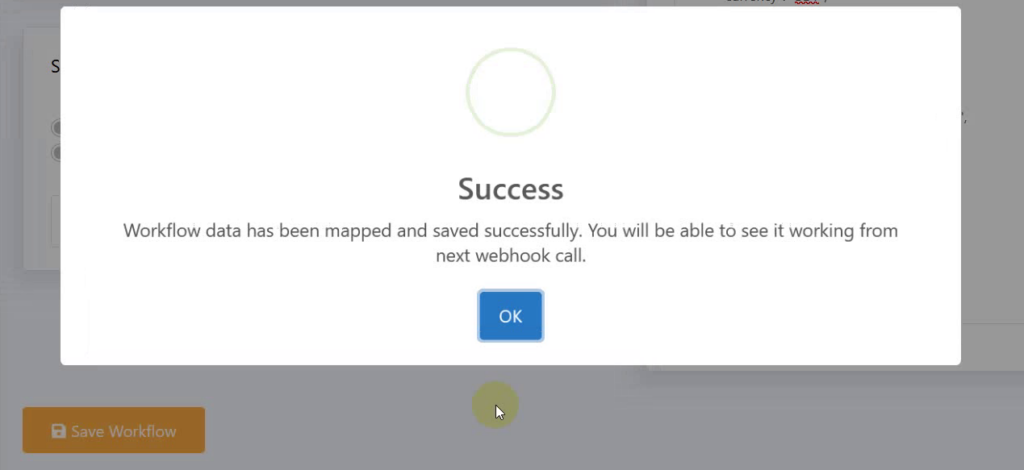
That is, Webhook setup is completed.
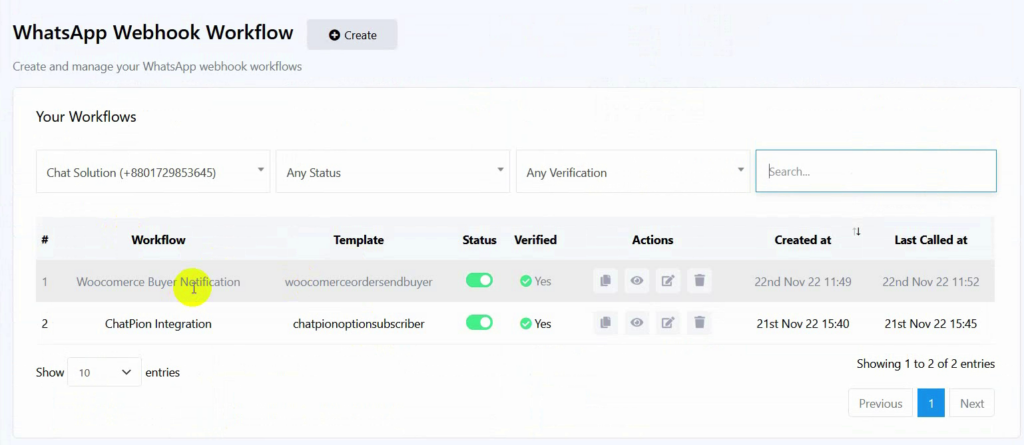
Now check how it works with live data.
Now I will place an order in the WooCommerce store to check the Webhook.
After I have placed an order, I should get a WhatsApp message.
Now return to Xpressbot to check the Webhook report.
Webhook take some time to process data.
After a few moments, check the report of the webhook.
You will see that the process is completed.
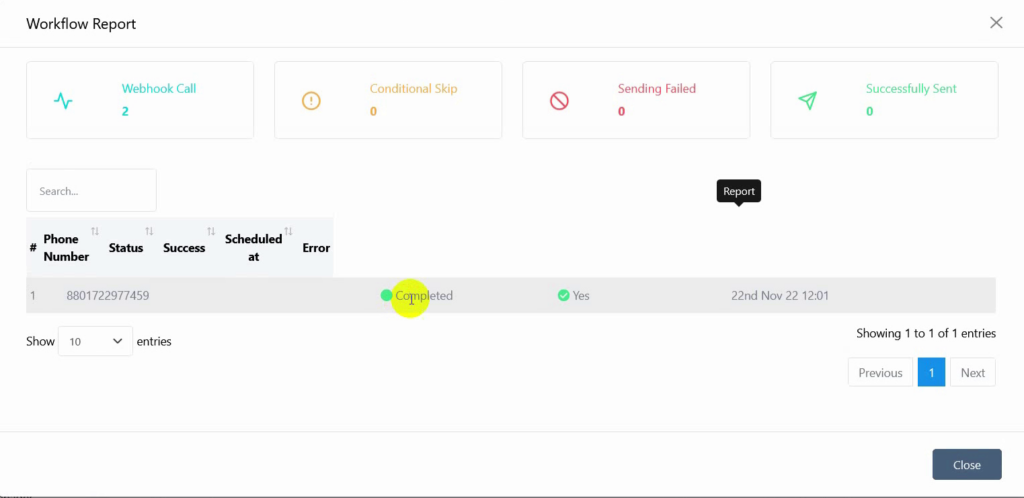
Let’s check the WhatsApp account to check if the message has arrived.
This is how you can send WhatsApp messages as WooCommerce order notifications to customers.
You have more details lets click on this video
